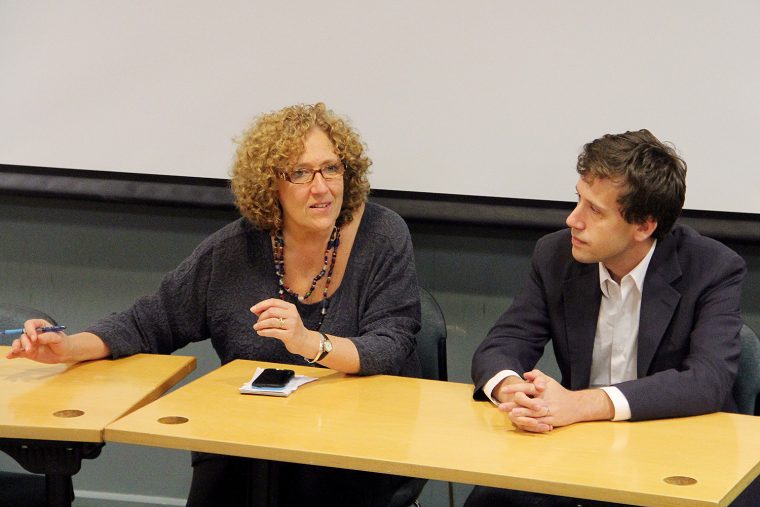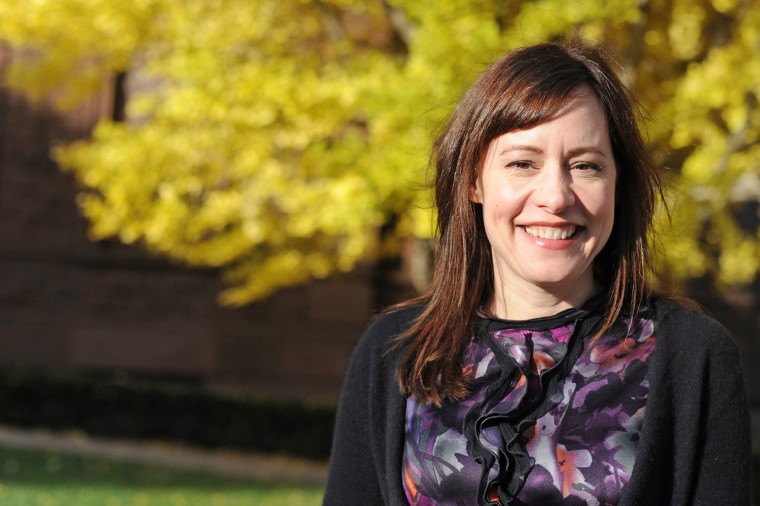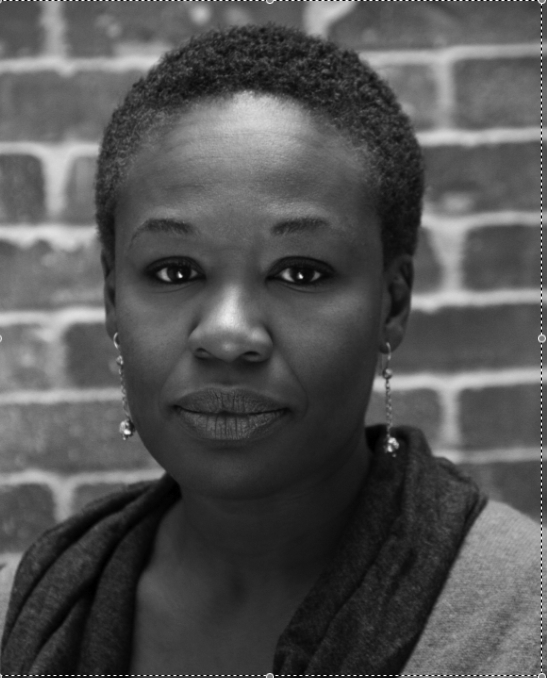Christina Crosby, professor of English, professor of feminist, gender and sexuality studies, is the author of an essay on injury and grief in a special issue of Guernica magazine on "The Future of the Body." Titled, "My Lost Body," Crosby's essay explores the grief she has experienced since a bicycle accident 13 years ago, just after her 50th birthday, left her paralyzed. The accident was the topic of her memoir, A Body, Undone: Living On After Great Pain (NYU Press, March 2016). She writes, "Because of my transformation, I have worked hard to conceptualize how embodied memory works—like the muscle memory that allows you to ride…
Laura Grabel, the Lauren B. Dachs Professor of Science and Society, professor of biology, warns in a new op-ed that the progress of embryonic stem cell research in this country, always subject to the ups and down of politics, is currently under threat. Co-authored with Diane Krause of Yale University, the op-ed in The Hartford Courant notes that Tom Price, President Donald Trump's nominee to head the Department of Health and Human Services, is on record opposing embryonic stem cell research. They write: As stem cell researchers, we fear that this appointment would endanger human embryonic stem cell research in the United States…
The Philosophy of Science Association (PSA) Women's Caucus awarded Professor Victoria Pitts-Taylor with the Women's Caucus Prize in Feminist Philosophy of Science for her recent book, The Brain's Body: Neuroscience and Corporeal Politics. This prize is awarded biennially for the best book, article, or chapter published in English in the area of feminist philosophy of science within the five years prior to each PSA meeting. The winner receives an award of $500, which is presented at the PSA meeting. The Brain's Body: Neuroscience and Corporeal Politics (2016, Duke University Press) draws on feminist philosophy, feminist science studies, queer theory, and…
Victoria Pitts-Taylor, chair and professor of feminist, gender and sexuality studies, is the editor of Mattering: Feminism, Science and Materialism published by NYU Press in August 2016. Anthony Hatch, assistant professor of science in society, co-authored a chapter in the collection titled "Prisons Matter: Psychotropics and the Trope of Silence in Technocorrections." Mattering presents contemporary feminist perspectives on the materialist or ‘naturalizing’ turn in feminist theory, and also represents the newest wave of feminist engagement with science. The volume addresses the relationship between human corporeality and subjectivity, questions and redefines the boundaries of human/non-human and nature/culture, elaborates on the entanglements of…
In a July 11 Roth on Wesleyan blog, President Michael Roth responds to two recent killings of black men by police officers in Louisiana and Minnesota, and the murders of five police officers in Texas. In the blog, titled, "On What Matters" Roth shares his own thoughts and the reflections of others that he found meaningful. He writes: Too often I have written blog posts about tragedies, violence, injustice. From attacks in other parts of the world to devastation right here in the USA, I have expressed sorrow, anger—and often a feeling of solidarity with those who have suffered, are suffering. Readers have pointed out that…
Writing in The Washington Post, Lori Gruen, the William Griffin Professor of Philosophy, argues that fingers are being pointed in the wrong direction after Harambe, an endangered lowland gorilla, was shot and killed at the Cincinnati Zoo after a 4-year-old child entered his enclosure. "The real culprits are zoos," she writes. Many in the animal protection community contend that the gorilla didn't pose a real threat to the boy, and are questioning if zoo staff did enough to try to separate Harambe from the child. Others are blaming the boy's mother for not properly supervising him. Gruen writes: For me, the real question is…
In her latest essay on The Huffington Post, Professor of Anthropology Gina Athena Ulysse takes on the matter of U.S. foreign food aid policy vis-a-vis Haiti, which she writes is undermining farmers in the Caribbean nation. She focuses on mamba, the Kreyòl word for peanut butter, which she fondly recalls being made by locals when she was growing up in Haiti. "To me, mamba is as quintessentially Haitian as basketball is (North) American. Now, it faces risks as another charitable gift of food aid undermines Haitian autonomy by threatening to bench local farmers’ peanuts production, our cultural practices, and even our tastes," she writes. "This is not…
The Chronicle of Higher Education has published an excerpt from a new memoir by Christina Crosby, professor of English, professor of feminist, gender and sexuality studies. The book, A Body, Undone: Living On After Great Pain, is due out later this month from NYU Press. Crosby tells the story of how her life changed after a bicycle accident in 2003, just after her 50th birthday, left her paralyzed. According to the publisher, "In A Body, Undone, Crosby puts into words a broken body that seems beyond the reach of language and understanding. She writes about a body shot through with neurological pain,…
Gina Athena Ulysse, professor of anthropology, professor of feminist, gender and sexuality studies, writes an "Ode to Haiti's Neo-Comedians" in The Huffington Post about Haiti's recently cancelled election runoff. The title of her essay refers to Graham Greene's The Comedians, a book whose description read: "Set in Haiti, amid an atmosphere of brutal force and terror-ridden love, three desperate people work out their strange destinies." Ulysse writes: Relevance of The Comedians is apparent in Haiti's recently cancelled election runoff that was set for this past Sunday. Indeed, until then, the outgoing president Michel Martelly, a chap with dictatorial tendencies who leads the "Bald Headed Haitian Party"—insisted on…
Professor of Religion Elizabeth McAlister is the author of a new paper, "The Militarization of Prayer in America: White and Native American Spiritual Warfare" published Jan. 4 in the Journal of Religious and Political Practice. In the article, McAlister examines how militarism has come to be one of the generative forces of the prayer practices of millions of Christians across the globe. She focuses on the articulation between militarization and aggressive forms of prayer, especially the evangelical warfare prayer developed by North Americans since the 1980s. Against the backdrop of the rise in military spending and neoliberal economic policies, spiritual warfare evangelicals…
Professor of Religion Elizabeth McAlister spoke to The Guardian about the state of the Vodou religion in Haiti today. “Most Americans don’t know that they don’t know what Vodou really is,” said McAlister, who specializes in Haitian Vodou. The article describes the actual practice of Vodou, and discusses its critical place in Haiti's history as the first black republic. And turning to McAlister for her expertise, it addresses Vodou's stance on homosexuality. “Many, many gays and lesbians are valued members of Vodou societies,” explains McAlister, who has devoted years to researching LGBT in Haitian religion. “There is an idea that Vodou spirits that are thought to…




